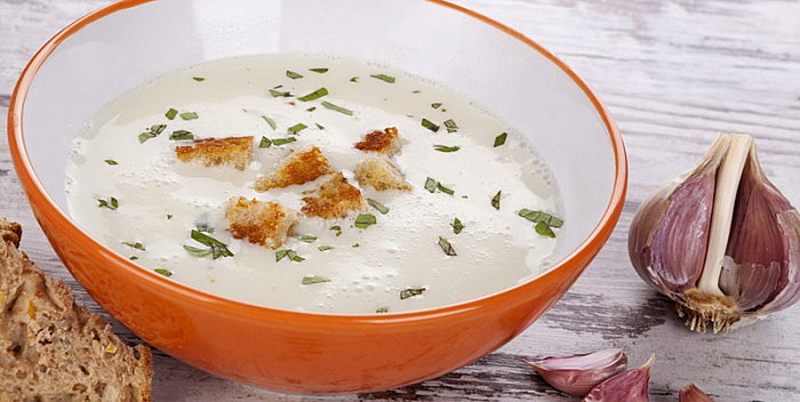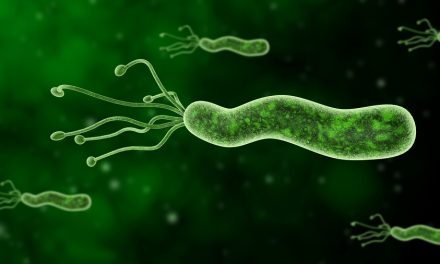
As we sneeze and cough our way through these dark months of contagious nasties, garlic is being hailed for its powers to halt viruses in their tracks.
It has gained its reputation as a virus buster thanks to one of its chemical constituents, allicin.
A recent and significant finding from Washington State University shows that garlic is 100 times more effective than two popular antibiotics at fighting disease causing bacteria commonly responsible for foodborne illness.
When the garlic is crushed, alliin becomes allicin. Research shows that allicin helps lower cholesterol and blood pressure and also helps prevents blood clots. Garlic can also reduce the risk of developing atherosclerosis (hardening of the arteries). Compounds in this familiar bulb kill many organisms, including bacteria and viruses that cause earaches, flu and colds. Research indicates that garlic is also effective against digestive ailments and diarrhea. What’s more, further studies suggest that this common and familiar herb may help prevent the onset of cancers.
(Here’s a similar recipe. Enjoy!)
‘This chemical has been known for a long time for its anti-bacterial and anti-fungal powers,’ says Helen Bond, a Derbyshire-based consultant dietitian and spokeswoman for the British Dietetic Association.
‘Because of this, people assume it is going to boost their immune systems. Lots of people are simply mashing up garlic, mixing it with olive oil and spreading it on bread.
‘But how or whether it may actually work has still not been proven categorically.’
Indeed, scientists remain divided on garlic’s ability to combat colds and flu. Last March, a major investigation by the respected global research organisation, the Cochrane Database, found that increasing your garlic intake during winter can cut the duration of cold symptoms — from five-and-a-half days to four-and-a-half.
But the report, which amalgamated all previous scientific studies on garlic, said it could not draw solid conclusions because there is a lack of large-scale, authoritative research.
The problem is that pharmaceutical companies are not interested in running huge, expensive trials — as they would with promising new drug compounds — because there is nothing in garlic that they can patent, package and sell at a profit.
Modified Garlic Soup Recipe
Serves 4
26 garlic cloves (unpeeled)
2 tablespoons olive oil
2 tablespoons (1/4 stick) organic butter (grass fed)
1/2 teaspoon cayenne powder
1/2 cup fresh ginger
2 1/4 cups sliced onions
1 1/2 teaspoons chopped fresh thyme
26 garlic cloves, peeled
1/2 cup coconut milk
3 1/2 cups organic vegetable broth
4 lemon wedges
Preheat oven to 350F. Place 26 garlic cloves in small glass baking dish. Add 2 tablespoons olive oil and sprinkle with sea salt and toss to coat. Cover baking dish tightly with foil and bake until garlic is golden brown and tender, about 45 minutes. Cool. Squeeze garlic between fingertips to release cloves. Transfer cloves to small bowl.
Melt butter in heavy large saucepan over medium-high heat. Add onions, thyme, ginger and cayenne powder and cook until onions are translucent, about 6 minutes. Add roasted garlic and 26 raw garlic cloves and cook 3 minutes. Add vegetable broth; cover and simmer until garlic is very tender, about 20 minutes. Working in batches, puree soup in blender until smooth. Return soup to saucepan; add coconut milk and bring to simmer. Season with sea salt and pepper for flavour.
Squeeze juice of 1 lemon wedge into each bowl and serve.
Can be prepared 1 day ahead. Cover and refrigerate. Rewarm over medium heat, stirring occasionally.

If garlic were found to be a wonder drug, consumers could simply buy it in the supermarket for 30p a bulb or grow their own in the garden.
*Article originally appeared at Complete Health and Happiness.












